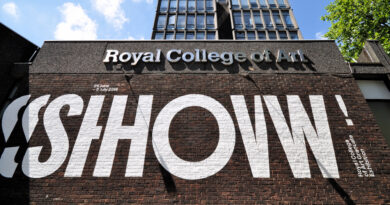Postgraduate courses in Sculpting
Some of the most famous pieces of art around the world are magnificent sculptures. They carry such beauty and expertise. Think of some of the most famous pieces in the world such as Venus of Willendorf (28,000-25,000 BC) or Michelangelo’s famous David from the Renaissance area. They go down in history.
Are you interested in being part of this area? Do you want to make some beautiful sculptures and enhance your skills? A postgraduate course in sculpting might be just what you need!
We have gathered some information below to give you an idea of what courses are available and what will be expected of you so take a look and see.
What does a sculpture do?
As a sculptor you may be employed by an art gallery or museum, for example, but most of the time sculptors are freelancers. It is hard to put a number on the hours you may work per week as you could be expected to work long hours in order to get projects and sculptures finished.
As a sculptor you will work with clay, stone, marble, wood and other materials similar. You will shape, cut, carve and weld pieces into the desired shape you;re looking for in order to bring your ideas to life through 3D sculptures. You may also carve into walls or carve shapes into surfaces through a technique known as relief. You will create art through your manipulation of materials.
Courses
There are many courses on offer in the area across the UK. Some courses offer the opportunity to study either part time or full time. Universities may have certain restrictions in place due to Covid-19 and may offer courses online. The majority of courses available under this heading are related to landscaping. There are a number of courses available in landscaping of specific areas. Courses available include:
Sculpture
Postgraduate courses such as this one, Sculpture, will allow students to specialise in this area of art and develop their shouting techniques and skills to produce high quality art. Students will also discuss contemporary issues for making sculptures. Key focuses of these courses include object making, public art, social practices, site and space, performance, sounds, film and video. The aim is to get students thinking of sculptures as methodology which will lead to the production of art.
Fine Art Practice (Sculpture)
There are also postgraduate courses available in the area of Fine Art Practice specifically looking at Sculptures. A course like will offer students the opportunity to expand in the field of theory and practice in relation to sculpture. There is a large focus on place and context. Another aim of a course like this is to ensure that you will test and investigate theoretical approaches to making collaboration and social engagement. Students will have the opportunity to develop their personal skills in relation to challenges they may be presented with in this area. It is a largely practice based programme that aims to help students to pursue an advanced pathway in this area.
Entry requirements
Entry requirements may differ from course to course or university to university. Therefore, it is important to research your specific course in detail to ensure you meet the entry requirements. As these courses are postgraduate courses, you will need a bachelor’s degree. Some courses may accept a 2.2 degree while others will require a 2.1. It is desired that students may have a foundation in history or the history of art and an understanding of materials and techniques.
Salary
Your salary in this area may be dependent on your exact employment, location and maybe even experience. As a sculptor in the UK it is believed you may earn
Related jobs
Jobs related to this area include:
- Sculptor
- Artist
- Painter
- Ceramics designer
- Oil painters
- Portrait artist
- Portrait painter
- Metal Arts production artist
- Fine-art painter
Skills and requirements
Skills and requirements helpful in this area include:
- Creative flair
- Practical skills
- Ability to work with your hands
- Time management skills
- Organisation skills
- Attention to detail
- Patience
- Understand health and safety issues
- Be able to use tools where necessary
- Perseverance
- Ability to adapt to change
- Steady hands
- Stamina
- Imaginative
- Self motivated
- Precision




